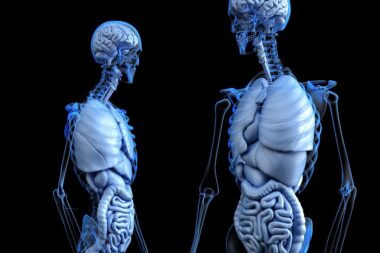The Importance of Sleep During a Gut Detox Diet
When undergoing a gut detox diet, the significance of sleep cannot be overstated. Quality sleep supports various bodily functions, ensuring the detoxification processes happen effectively. During sleep, the body enters a state of repair where it flushes out toxins accumulated from daily life, including processed foods and environmental pollutants. Insufficient sleep can hinder this process, increasing the likelihood of digestive issues like bloating and constipation. Additionally, a well-rested body is more efficient at nutrient absorption, crucial during a detox diet. A deep sleep cycle, particularly during the REM phase, allows the digestive system to regulate and repair itself. Furthermore, adequate rest enhances mental clarity and motivation to adhere to dietary changes. Disrupted sleep can lead to cravings, particularly for sugary and unhealthy foods, undermining detox efforts. Moreover, hormones linked to appetite and metabolism are regulated during sleep, reinforcing the importance of a good night’s rest. Incorporating consistent sleep routines is essential for those serious about their gut health. Strive for regular sleep schedules, aiming for 7 to 9 hours of uninterrupted sleep each night, reinforcing overall well-being in combination with dietary habits.
Strategies to Improve Sleep Quality
Optimizing sleep quality hinges on several strategies that can enhance the effectiveness of your gut detox diet. First and foremost, establishing a relaxing bedtime routine signals your body that it’s time to wind down. Activities such as reading, gentle stretching, or meditation can be beneficial. Additionally, limiting blue light exposure from screens at least an hour before sleep will help regulate your circadian rhythm. Creating a comfortable sleep environment is equally vital; a dark, cool room can significantly improve sleep quality. Investing in a good mattress and pillows contributes to physical comfort, eliminating distractions that can disrupt rest. Another aspect is nutrition; certain foods promote better sleep, such as those rich in magnesium, which can be incorporated into your detox diet. Foods like leafy greens, nuts, and seeds can not only assist with digestion but also enhance sleep. On the contrary, avoiding caffeine and heavy meals close to bedtime may prevent disturbances during sleep. The synergy between good sleep and a gut detox diet fosters better outcomes, so prioritize sleep as a crucial element of your overall health strategy.
Understanding the Sleep-Digestive Health Connection
Research indicates a significant connection between sleep quality and digestive health, particularly during a gut detox diet. Sleep deprivation disrupts the delicate balance of gut bacteria, leading to issues with digestion and absorption. The gut microbiome thrives on consistency, and altered sleep patterns can skew this balance, causing an increase in harmful bacteria. Furthermore, insufficient sleep can lead to stress, which exacerbates digestive problems and impairs detoxification. Cortisol, the stress hormone, is elevated during periods of poor sleep, contributing to inflammation in the gut. This inflammation can manifest as symptoms like abdominal pain and irregular bowel movements. Conversely, a healthy gut can promote better sleep through the production of neurotransmitters like serotonin, influencing mood and relaxation. Therefore, improving your sleep hygiene can also indirectly support your gut health, creating a positive feedback loop. Understanding this intricate relationship reinforces the need to prioritize sleep when pursuing any health-focused initiative, especially those targeting the gut. By adequately addressing both sleep and dietary habits, individuals can maximize the benefits of their detox journey, enhancing overall wellness.
Common Sleep Disorders Affecting Detox
Common sleep disorders such as insomnia and sleep apnea can significantly impact the effectiveness of a gut detox diet. Individuals suffering from insomnia may find it challenging to adhere to detox protocols, given the exhaustion and irritability associated with sleep deprivation. This fatigue can lead to poor food choices, tempting one to consume convenient, unhealthy options instead of sticking to healthier detox foods. On the other hand, sleep apnea, characterized by interrupted breathing during sleep, results in fragmented sleep cycles, inhibiting the restorative processes critical for digestion and detoxification. The effects of sleep apnea often include increased daytime drowsiness, further impairing overall energy levels and motivation for health. Additionally, both conditions may exacerbate stress levels, creating a cycle that further complicates metabolic processes. To address these disorders, seeking help from healthcare professionals can provide diagnostic treatments that improve sleep, ultimately enhancing the body’s inherent detoxification capabilities. Embracing both lifestyle changes and medical interventions can pave the way towards achieving optimal sleep, which is vital for effective gut health and successful detox outcomes.
Sleep’s Role in Mental Clarity During Detox
During a gut detox diet, the role of sleep extends beyond physical aspects; it also significantly impacts mental clarity and emotional balance. Quality sleep contributes to cognitive functions such as memory consolidation and information processing, critical during dietary transitions. Individuals undergoing detox may face increased cravings and psychological triggers due to changes in diet; thus, mental sharpness is essential. A well-rested mind is better equipped to handle these challenges effectively. Additionally, sleep helps regulate emotions, reducing the likelihood of stress-induced eating. Lack of sleep can enhance feelings of anxiety or irritability, compounding struggles during detox. This emotional turbulence can lead to self-sabotaging behaviors that derail the detox diet’s goals. Regular sleep patterns help promote a stable mood, thereby improving willpower and determination. Establishing good sleep habits can enhance mental resilience, allowing individuals to navigate cravings with ease. Prioritizing sleep as a critical component in detox planning can lead to not only improved physical health but also fortified mental strength, essential for long-term dietary success and lifestyle changes.
The Impact of Stress on Sleep and Detox
The relationship between stress, sleep, and a gut detox diet is complex yet pivotal. Elevated stress levels can hinder sleep quality, making it difficult to achieve restorative sleep cycles crucial for detoxification. Stress triggers the production of cortisol, which can disrupt the balance of beneficial gut bacteria. This imbalance ultimately compromises digestion and detoxification processes, making it more challenging to rid the body of accumulated toxins. Consequently, ineffective detox processes may lead to heightened stress levels, creating a vicious cycle. Techniques such as mindfulness, yoga, or breathing exercises can alleviate stress and promote better sleep. Incorporating these practices into your daily routine can enhance sleep quality, aiding in both detoxification and overall gut health. Taking the time to manage stressors not only enhances sleep but also facilitates a smoother detox process, improving outcomes. A holistic approach that considers emotional well-being, proper sleep hygiene, and nutritional support is vital. This interconnected strategy maximizes the actual benefits of a gut detox diet, ultimately leading to improved health and well-being.
Conclusion: Prioritizing Sleep in Detox Plans
In conclusion, prioritizing sleep in your gut detox diet is essential for maximizing benefits. Undoubtedly, sleep quality significantly impacts physical and mental health, reinforcing the importance of restorative rest. By establishing healthy sleep habits, individuals can ensure their detox regimen is supported every step of the way. Implementing strategies to improve sleep quality fosters an environment conducive to effective detoxification and aids in nutrient absorption. As discussed, the intricate relationship between sleep and gut health demonstrates how essential it is to address both aspects concurrently. By focusing on sleep hygiene, stress management, and proper nutrition, you create a well-rounded approach that enhances not only your detox experience but also overall health. Making sleep a top priority enables individuals to face challenges during their detox journey with resilience and clarity. Ultimately, a commitment to better sleep can lead to sustainable lifestyle changes and an improved connection with your body’s needs. Therefore, when planning your gut detox diet, never underestimate the power of a good night’s rest. Let the rejuvenating aspects of sleep transform your detox experience into a successful journey.





